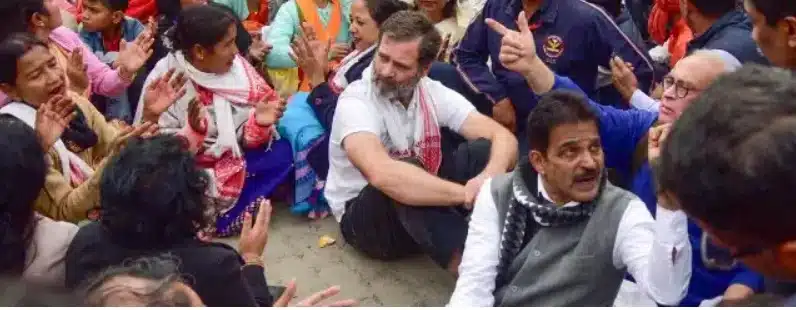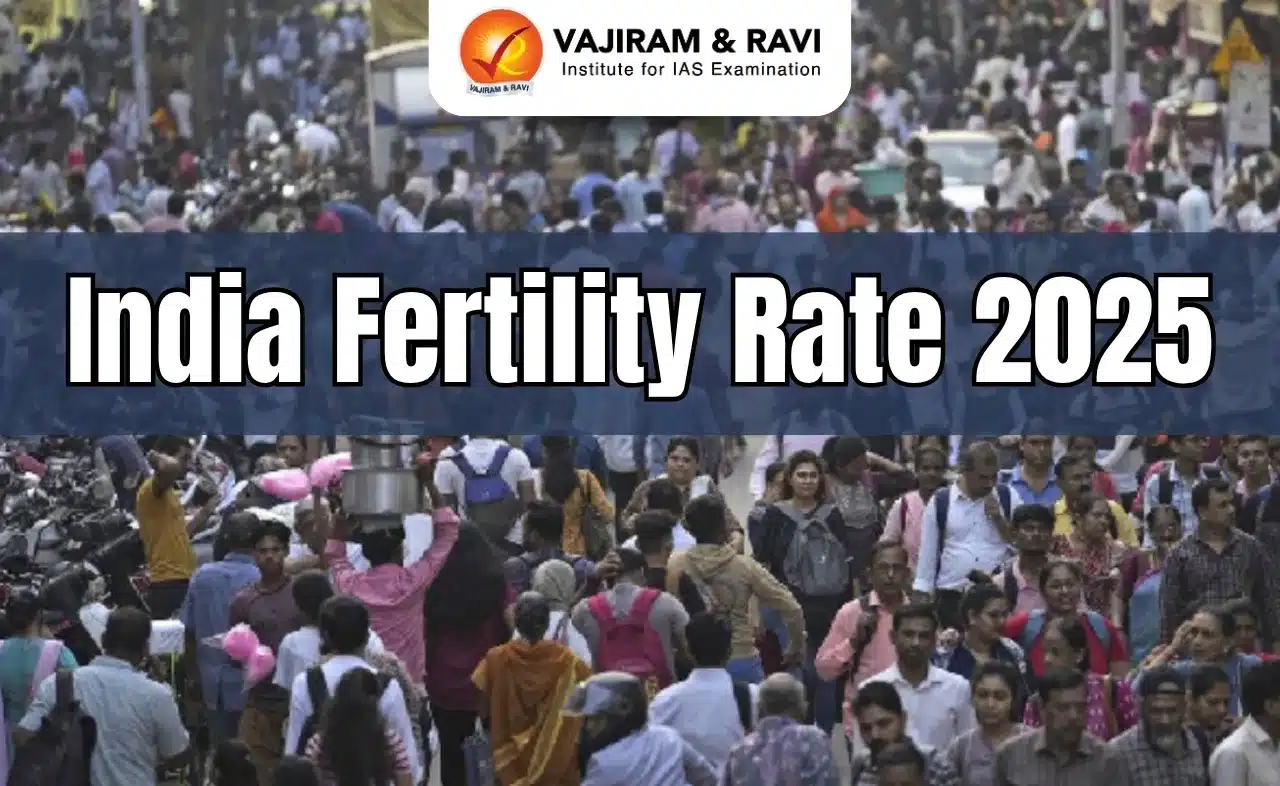What’s in today’s article?
- Why in news?
- What is Batadrava Than?
- Who is Srimanta Sankardev?
Why in news?
- Congress leader Rahul Gandhi was prevented from visiting Assam’s Batadrava Than, where he was going as part of his Bharat Jodo Nyay Yatra.
Batadrava Than
- About
- The Batadrava Than, or Bordowa Than, is a temple complex at the birthplace of revered Vaishnavite reformer-saint Srimanta Sankardeva.
- It is located in Nagaon district, Assam.
- Srimanta Sankardev established Than Satra in 1494 A.D. at the age of 19.
- It is one of the most sacred sites for Assamese Vaishnavites.
- The Batadrava Than, or Bordowa Than, is a temple complex at the birthplace of revered Vaishnavite reformer-saint Srimanta Sankardeva.
- Features
- Enclosed by a brick wall, the Than Satra has two entrances.
- The Kirtan Ghar, a capacious prayer house, was initially built by Sankardev using temporary materials.
- Connected to the Kirtan Ghar is the Manikut, a place dedicated to housing sacred texts, scriptures, and manuscripts.
- Administration of the Than
- The administration of the Than includes different officials appointed by the Sattradhikar (head of the Satra) to ensure the seamless execution of rituals and prayers.
- Doul Mohotsava
- An annual highlight for devotees in Bordowa is the grand festival “Doul Mohotsava,” celebrated during Holi.
- Ownership disputes
- Bordowa Than has a history marked by ownership disputes, resulting in its split into two Satras, namely Narowa and Salaguri.
- However, in 1958, it underwent a reunification process under the name ‘Bordowa Than,’ bringing together the two former Satras.
- Significance
- Identity has always been an important strain of Assam politics, and the Thans/Sattras are a component of Assamese identity.
- As one of the most prominent Thans, the Batadrava Than is often visited by politicians.
- The current Assam govt has sought to make land grabbing around Sattras by illegal settlers an electoral issue.
Srimanta Sankardev
- About
- The great Vaishnavite saint and reformer Srimanta Sankardev was born in Alipukhuri, Nagaon in 1449.
- He is credited with providing a thread of unity to Assam straddling two major kingdoms (Ahom and Koch kingdoms).
- The religion he started, Mahapuruxiya Dharma, was part of the Bhakti movement then raging in India.
- He inspired bhakti in Assam just as Ramananda, Kabir, Basava and Chaitanya Mahaprabhu inspired it elsewhere.
- Sankardeva’s philosophy
- He propagated the Ek Saran Naam Dharma.
- The Ek Saran Naam Dharma focussed on worship in the form of bhakti (devotion) to Lord Krishna.
- This was done through singing and congregational listening of His name and deeds.
- Sankardeva espoused a society based on equality and fraternity, free from caste differences, orthodox Brahmanical rituals and sacrifices.
- His teaching focused on prayer and chanting (naam) instead of idol worship.
- His dharma was based on the four components of deva (god), naam (prayers), bhakats (devotees), and guru (teacher).
- He propagated the Ek Saran Naam Dharma.
- Creation of monastic institutions known as Thans/Sattras
- The Neo-Vaishnavite reformist movement initiated by Sankardeva led to the creation of monastic institutions known as Thans/Sattras in Assam.
- As the saint traveled across the region, spreading his teachings in the 16th century, these Sattras/Thans were established as centers for religious, social, and cultural reforms.
- Today, these Sattras continue to promote Sankardeva’s distinctive worship through art approach, incorporating music (borgeet), dance (xattriya), and theater (bhauna).
- Major literacy creations
- His major literacy creations are the ‘Kirtan Ghosa’, ‘Gunamala’ etc.
- The holy songs written by him are known as ‘Borgeet’.
- The dramas written by him are known as ‘Ankia Naat’ and Sattriya Dance at that time was a part of it.
- In the ‘Ankiya Naats’ Srimanta Sankardev used the style of storytelling through drama, mostly depicting the life of Lord Krishna and Lord Rama.
- The first dramatical work by him was ‘Chihnajatra’. The various ‘Ankia Naats’ written by him are ‘Kaliya Daman’, ‘Patni Prasad’ etc.
- When he started going to school at the age of twelve, he wrote a poem on the praise of Lord Vishnu -‘Karatala Kamala Kamala Dala Nayana’ without using any vowels as he had learnt only the consonants till that time.
Q1) What is Ek Sharan Nam Dharma?
Ek Sharan Nam Dharma is a sect of the Vaishnava sect of Shankardeva. It is also called Navavaishnav religion. There is no predominance of idol worship in this religion. During religious festivals, only one holy book is kept on the platform and only it is offered as naivedya and devotion.
Q2) What is Doul Mahotsav?
Doul Mahotsav is a Hindu swing festival celebrated during the Holi festival. It is also known as Dola Purnima, Dolo Jatra, or Deul. The festival is celebrated in the Braj region, Rajasthan, Gujarat, Odisha, Assam, Tripura, and Bengal region.
Source: Rahul Gandhi prevented from visiting Batadrava Than: Significance of this Assam shrine | Hindustan Times | Assam Info | NDTV
Last updated on June, 2025
→ UPSC Notification 2025 was released on 22nd January 2025.
→ UPSC Prelims Result 2025 will be out soon for the CSE held on 25 May 2025.
→ UPSC Prelims Question Paper 2025 and Unofficial Prelims Answer Key 2025 are available now.
→ UPSC Calendar 2026 is released on 15th May, 2025.
→ The UPSC Vacancy 2025 were released 1129, out of which 979 were for UPSC CSE and remaining 150 are for UPSC IFoS.
→ UPSC Mains 2025 will be conducted on 22nd August 2025.
→ UPSC Prelims 2026 will be conducted on 24th May, 2026 & UPSC Mains 2026 will be conducted on 21st August 2026.
→ The UPSC Selection Process is of 3 stages-Prelims, Mains and Interview.
→ UPSC Result 2024 is released with latest UPSC Marksheet 2024. Check Now!
→ UPSC Toppers List 2024 is released now. Shakti Dubey is UPSC AIR 1 2024 Topper.
→ Also check Best IAS Coaching in Delhi






















